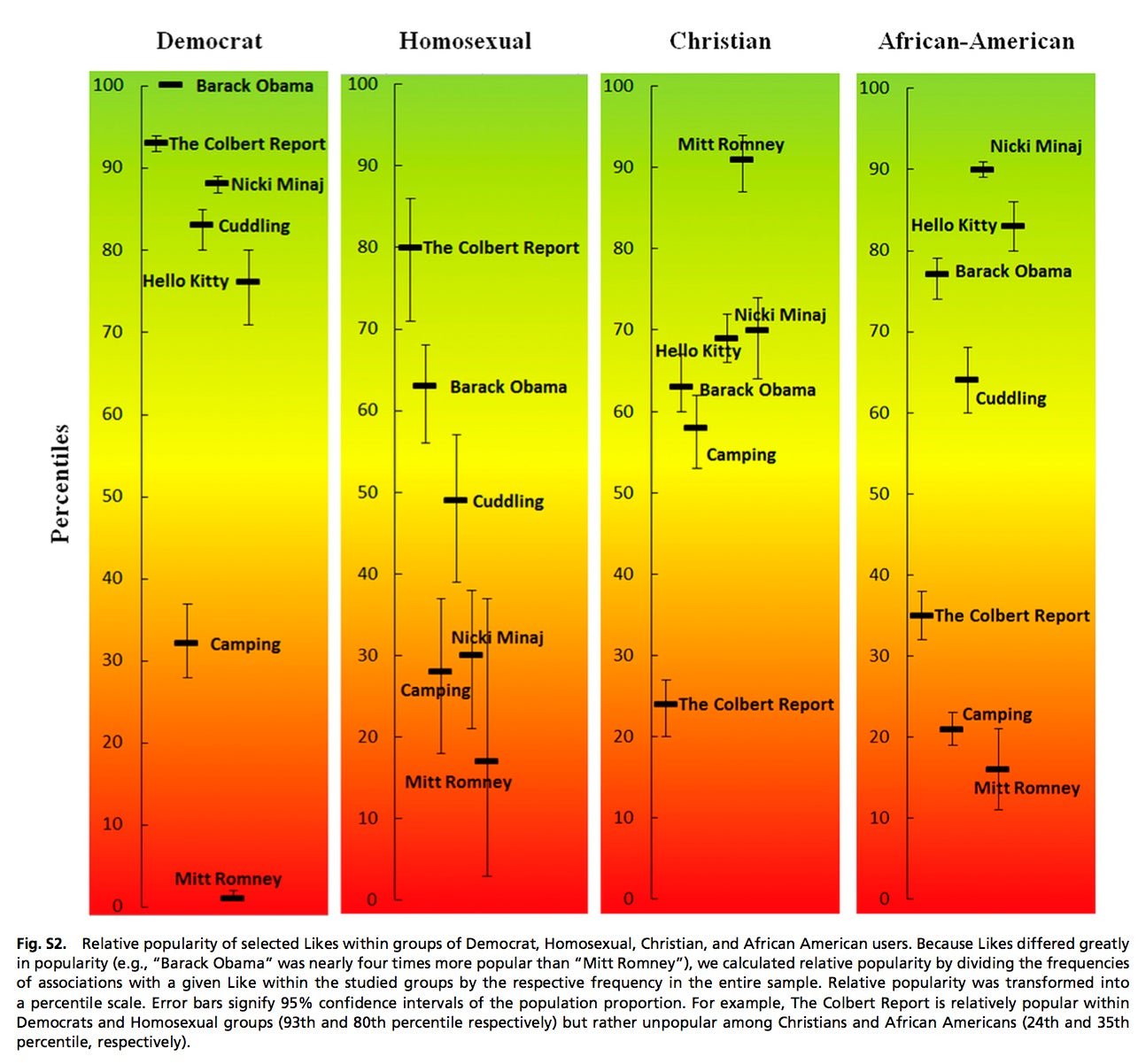Yes, Facebook probably knows you’re gay—but it doesn’t have to
In case you haven’t heard, Facebook is the new Big Brother. Even if you never mention them explicitly, your sexual orientation, drug use, and religion are an open book thanks to your public profile, which can be analyzed to suss out “highly sensitive personal attributes” with a startling degree of accuracy, according to a new study.

In case you haven’t heard, Facebook is the new Big Brother. Even if you never mention them explicitly, your sexual orientation, drug use, and religion are an open book thanks to your public profile, which can be analyzed to suss out “highly sensitive personal attributes” with a startling degree of accuracy, according to a new study.
Except, wait a minute. Facebook “likes,” which the study used to predict a range of demographic factors, don’t have to be public. You can hide them in two minutes (here’s how), although the site’s intentionally confusing and constantly shifting share rules are admittedly a pain, and many people may be broadcasting their likes and not realizing it.
With the scare-mongering stripped away, the study comes up with some unsurprising conclusions about what can be deduced from those Facebook thumbs-ups.
Take sexuality. The reseach model’s gaydar was 88% accurate, finding that men “liking” Britney Spears or Desperate Housewives is “moderately indicative of being gay.” (Only “moderately”?) Men who “liked” Wu-Tang Clan and “Being Confused After Waking Up from Naps,” meanwhile, turned out to be straight.

Women proved trickier, though. With only 75% accuracy did the model determine the sapphic divide by parsing likes of The L Word and “Not Being Pregnant” (guess) and those who favored Lipton Brisk and “I Just Realized Immature Spells I’m Mature” (straight women).
Despite media reports that focused on sexual orientation, religion and politics, what the model predicted by far the most accurately—at 95%—was race (meaning, either African-American or white). Erykah Badu, Jill Scott and Madea tipped the researchers off to African-American Facebook users. Stuff white people “liked” included bonfires, “I Come From A Town Where A Traffic Jam Is 4 Cars Behind A Tractor” and Bret Michaels.
Perhaps the oddest clue in the research was curly fries—people who “liked” them tended to have high IQs. But by and large, what the report calls “most predictive likes” also happen to be blindingly obvious cultural cues. It’s kind of hard to believe that people who, say, “like” Nancy Pelosi think they’re keep their political views obscure, or that anyone who sponsors “Dear Liver Thanks You’re a Champ” is shy about a zeal for drinking.
The study inspired more than a few ominous headlines about “how data trails can be mined for sensitive information” (paywall). But it’s not the “like”-mining that’s the problem, though, so much as user ignorance, abetted by Facebook’s nefarious incentive to maximize the amount of information made public. It’s really not that hard to change one’s privacy settings. But maybe you have to like curly fries to know that.